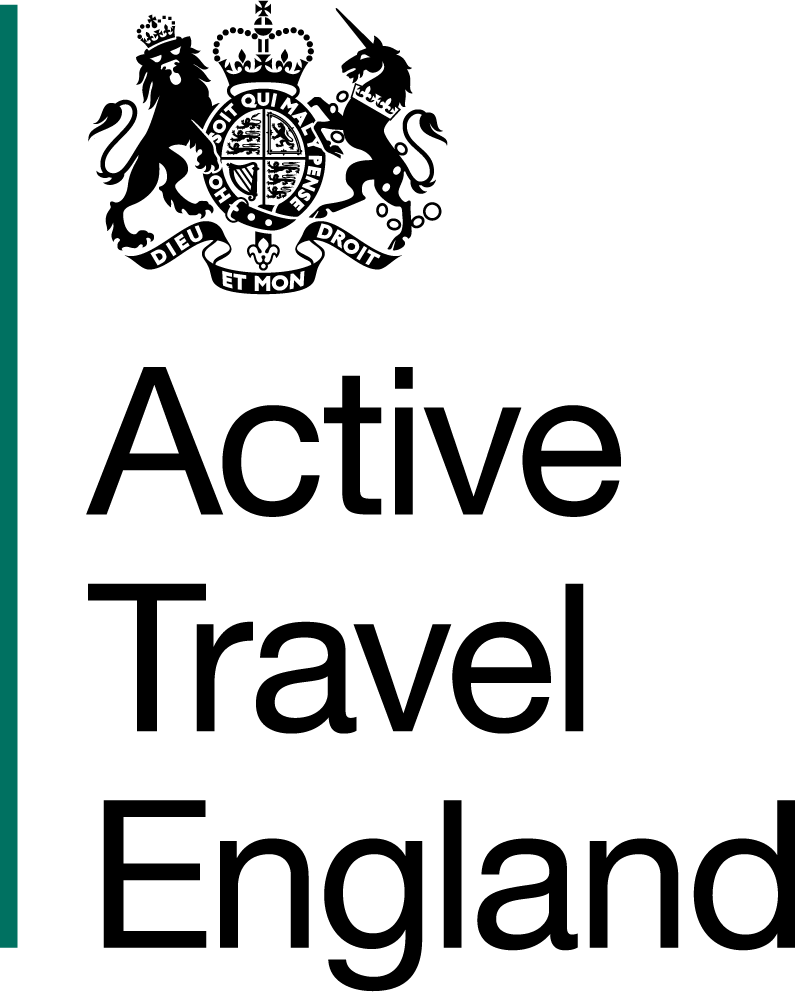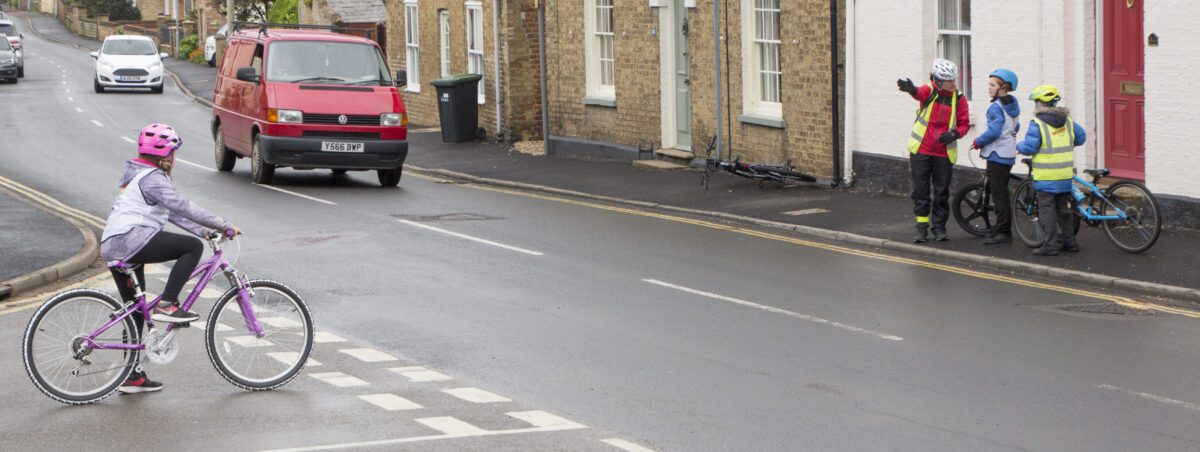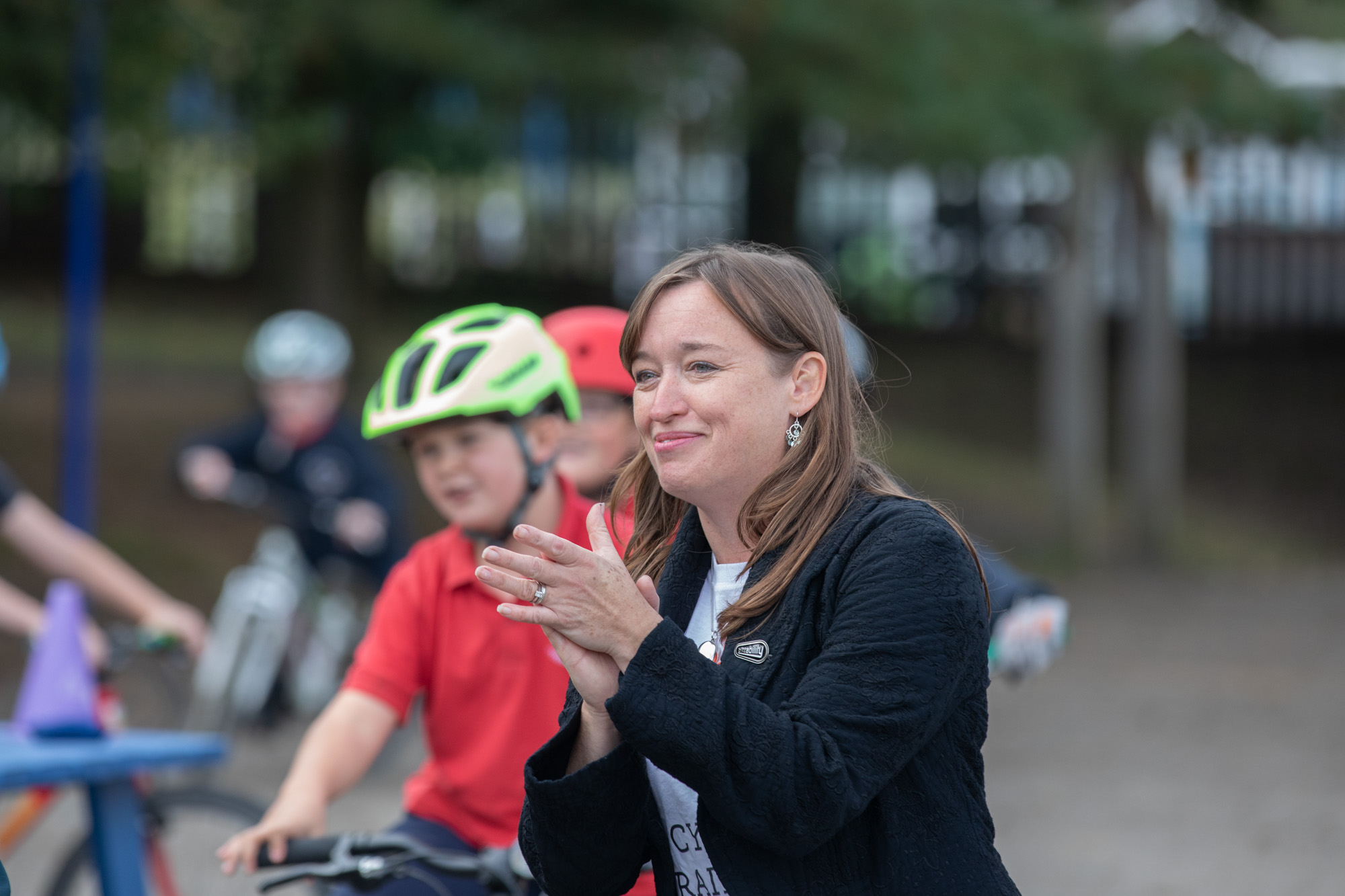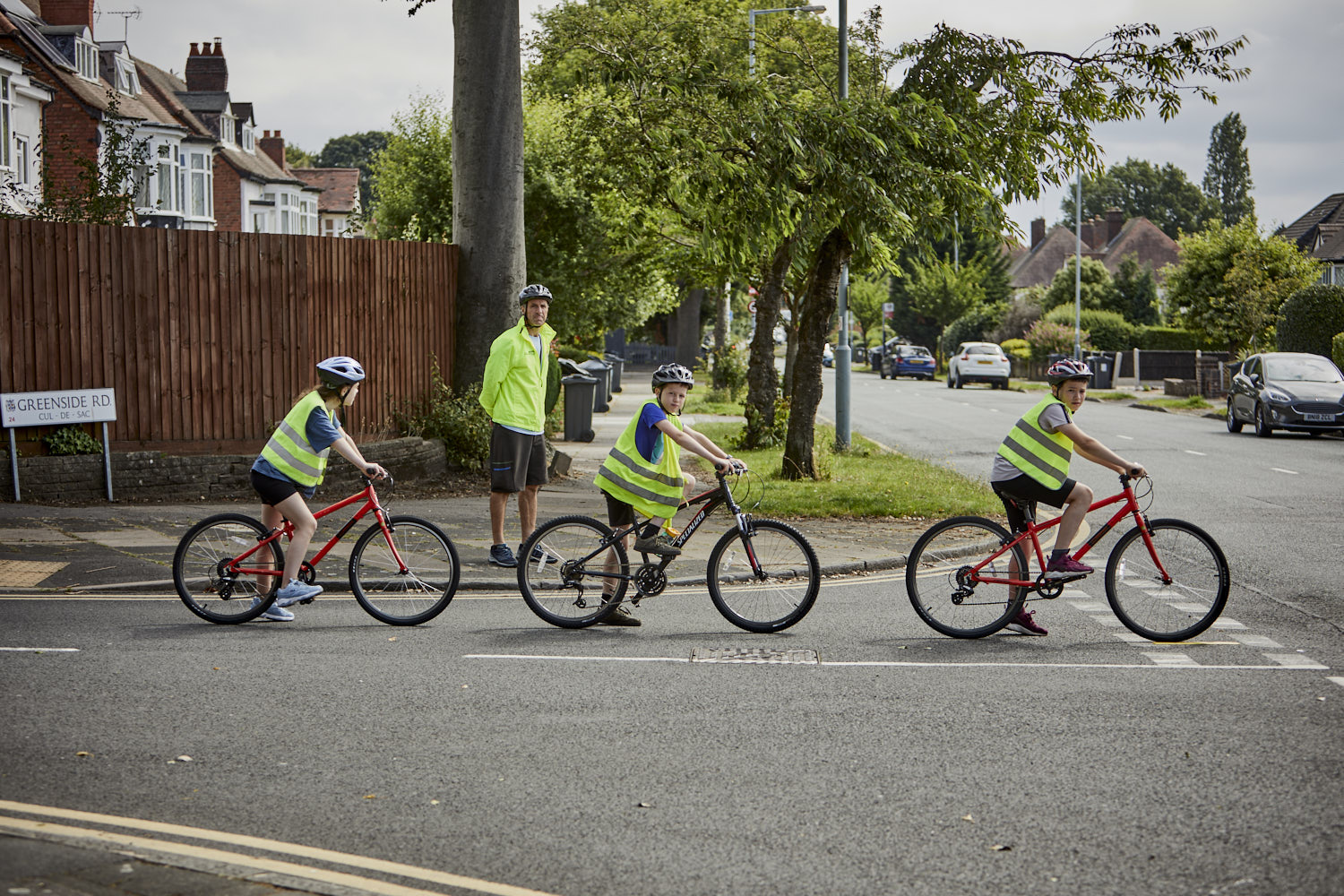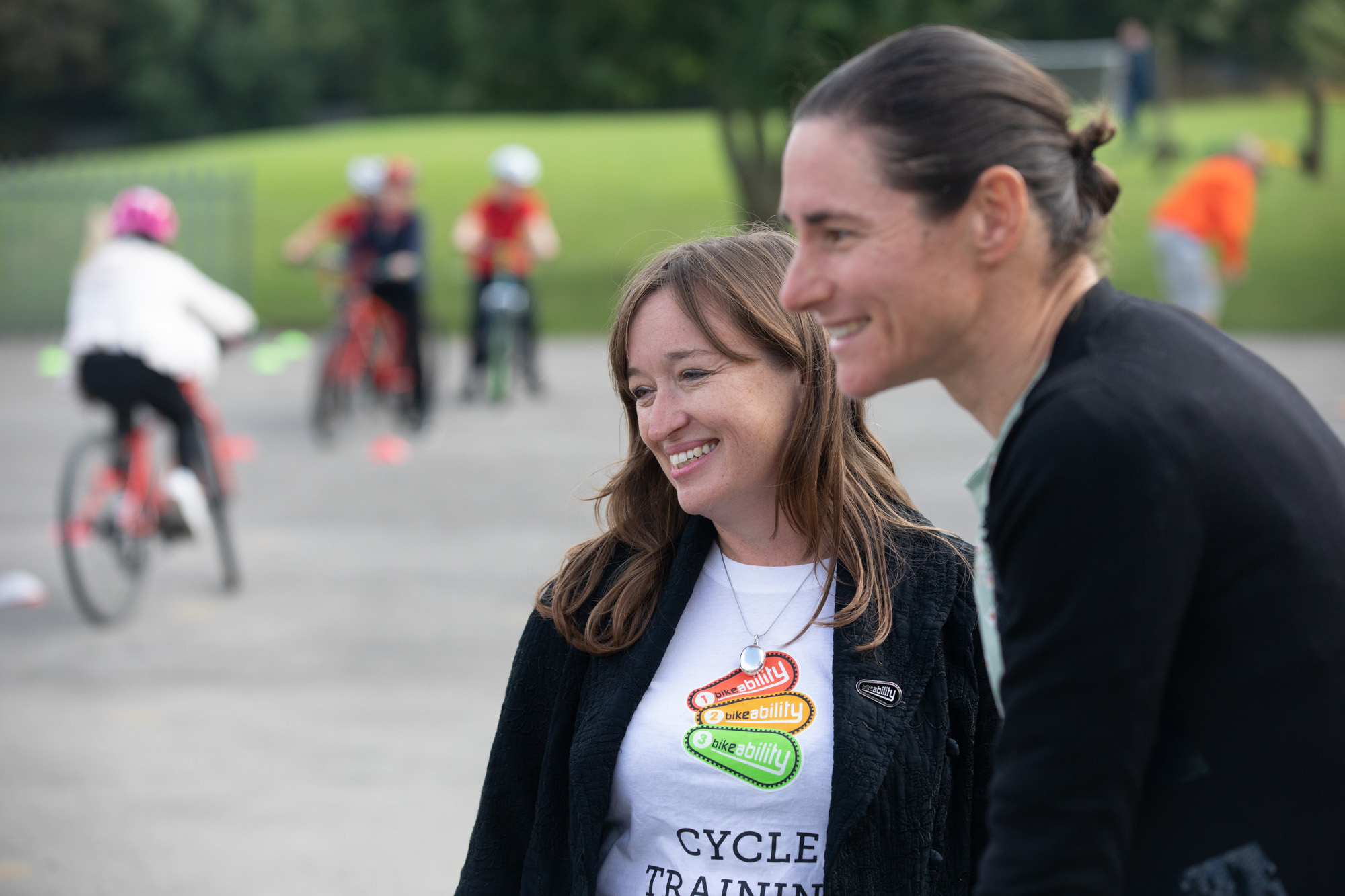With Sports England’s annual Active Lives survey revealing most children’s activity levels are now back to pre-pandemic levels, it could be tempting to view this as good news. But with less than half (47%) of children meeting daily activity guidelines and some specific groups of children still failing to return to pre-pandemic activity levels, action must be taking to get kids moving more. So, how can Bikeability cycle training enable more children and their families more active?
Cycling is an effective way to increase activity by building it into children’s daily routine without signing up to expensive clubs or classes. Swapping the car for cycling on the school run, trips to the shops or other family journeys is a simple change that helps children become more physically fit and mentally well, tackles the climate crisis, and saves money, something we are all concerned about right now. As a working mum, I understand how busy family lives are but anything I can do to protect our family finances and help my children’s physical and mental health is a priority for me. Which is why we took part in Bikeability training as a family, to give us the confidence we need to cycle more.
I was really encouraged that Sports England research shows that children are already using active travel to stay active. Travelling by cycling, walking or wheeling is one of the most popular ways for children to get their activity. Across all ages, 57% of children said they had used active travel in the past week and over half of all children and young people ride, walk or scoot to school. But I’m also worried that despite parents, carers and children wanting to travel actively, 40% of children are still driven to school everyday, with junior school children aged 7 – 11 the most likely to be driven to school. Family lives are busy and making the switch may be daunting for some parents but swapping the car for active travel can be so beneficial in many ways.
Since 2007, the Bikeability Trust, the charity responsible for delivering the government’s national cycle training programme on behalf of the Department for Transport, has trained more than four million children, and thousands more families, to cycle on today’s roads with Bikeability. By teaching the life skill of cycling, we’ve unlocked freedom, fun and opportunities for millions of children across England.
We know there are millions more children that should be benefiting from Bikeability but despite the many health, environmental and cost saving benefits of swapping the car for cycling, many families face barriers to making the switch.
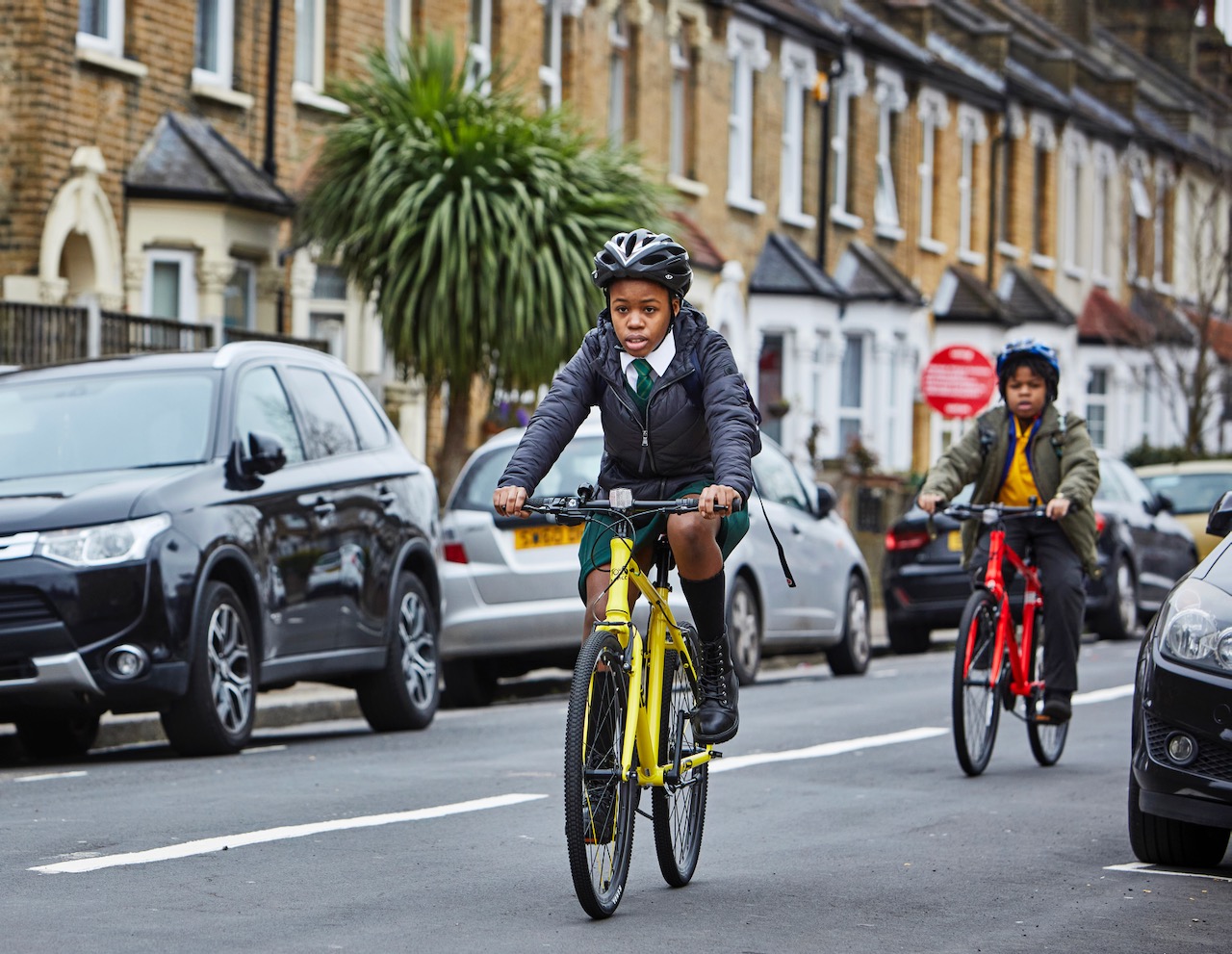

In recent YouGov research, 74% of people agreed that professional cycle training for children is important. But it’s clear cycle training isn’t the only intervention needed to get more kids on cycles. The public also reported that with safe cycle routes (59%), time for parents to practice with their child (34%), and mandatory driver education on sharing the road with cyclists (30%).
Whilst there’s been a positive shift in teenage girls, with the Active Lives survey showing that they are at their most active since the 2017-18 academic year, low affluence families are still less likely to be active than those from high affluence. Whilst Black boys, primary school children aged 7 –9 and children and young people going to school in the most deprived places in the country have not seen activity recover to pre-pandemic levels.
Through our Widening Participation Fund, we’re tackling the barriers to cycling for underrepresented groups. In Bradford, teachers are being trained as Bikeability instructors to embed cycle training into the curriculum from early years, to enable more south-east Asian families to get cycling, and in Liverpool Bikeability is being delivered to young boys in Toxteth, so they have the skills to travel independently.
In September, we gave almost 500 cycles to children most in need through Bikeability’s partnership with Halfords. Access to cycles is a huge barrier for some families and by working with corporate partners, Bikeability hopes to give more children the opportunity to have a cycle of their own. Through the government’s holidays and food activities programme, we’re reaching children from low-income families in the school holidays.
Despite a record £20 million funding from the Department for Transport to deliver Bikeability in schools and investing an additional £1.6million in removing the barriers to cycling through dedicated projects. As it stands, just 60% of schools receive Bikeability cycle training. There just simply isn’t enough funding to reach every child and achieve the active travel targets set out by the government.
To drive the shift active travel, we need a holistic approach that brings together infrastructure improvements and behaviour change programmes. Every child and their family should be able to access the cycle training they need to get road confident, and be able to travel on genuinely safe and inclusive cycling infrastructure. Bikeability will play a vital role in achieving Active Travel England, the new government body headed up by Active Travel Commissioner Chris Boardman MBE, target of 50% of urban journeys to be cycled or walked by 2030.
Sports England’s Active Lives report provides crucial insight into how children are getting their activity. Whilst it’s positive that activity levels have returned to pre-pandemic levels in most groups, more must be done to embed activity into children’s lives, regardless of their background. Without the skills they need to cycle, families will stay in their cars and children will continue to live sedentary lives. Bikeability cycle training gives children and their parents the confidence they need to leave the car at home and cycle for short, everyday journeys. The government must continue to fund active travel to enable more families to live active, healthy and happy lives.
